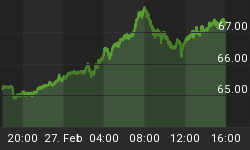Another crop of strong data out of the UK has the markets assuming that the Bank of England's (BoE) repo rate will be 25bp higher by the end of March. With the service sector growing at its fastest rate in a decade and the housing market still rocketing along, there is a better than even chance of a rate hike at either the February 8 or March 8 meeting. As we've noted before (see Daily Global Commentary, December 14: More Evidence Pointing to - but not Guaranteeing, a Q1 Rate Hike in the UK), the BoE's own forecast predicted a spike in inflation around the turn of the year - hence the rate hikes in August and November - followed by a marked deceleration in price increases by mid-2007. One of the potential sources of inflationary pressure that the members of the Monetary Policy Committee (MPC) are watching most closely is the January wage round. However, it's looking less likely that the MPC members will be comfortable with continuing to watch and wait, even if wage increases are relatively contained.
The CIPS/RBS services survey for December showed the sector growing at its fastest rate in a decade, with the headline Purchasing Managers' Index (PMI) hitting 60.6, up from 59.8 in November. The employment index posted its best reading in more than nine years at 56.0, while the business expectations index climbed to a near-three year high of 79.1 (74.3 in November). This stands in marked contrast to the manufacturing sector, where the December PMI slipped to a low for the year, at 51.9 (52.5 in November). However, it's the services sector that accounts for some 73% of the economy.
The housing market also continues to surprise on the upside despite the interest rate hikes in August and November. The BoE reported today that mortgage lending rose by £9.83 billion in November, while mortgage approvals rose to 129,000 - both around three-year highs. Last week, the Nationwide Building Society reported that house prices in December rose 10.5%, their fast annual rate in two years. Also last week the British Bankers' Association (BBA) reported that mortgage approvals rose 9.1% on the year in November - well down from the heady 20%+ rates being seen back in the spring, but still higher than expected. Underlying new mortgage lending hit a record high of £6.7 billion, for an annual increase of 14%. The MPC members are likely to be very leery of any signs of renewed froth in the housing market - but, has this recent recovery been driven by buyers locking in their purchases before interest rates go any higher, or by unusuallytight conditions in a few key regions that have seen a recent surge in immigration?
In contrast with the housing market, the BBA also reported that the annual increase in consumer credit slowed to just 2%, and the BoE noted today that the growth in unsecured lending eased slightly from £1.101 billion in October to £1.043 billion in November. The GfK consumer confidence survey for December, released today, saw the overall index slip to -8 from -7 in November. Although consumers remain pretty sanguine about their personal financial outlook (with a reading unchanged at +11), their view of the "major purchase climate" dropped from +1 in November to a far more cautious -4 in December. All told, it seems that those rate hikes may be starting to crimp spending habits.
Next up on the calendar is the January 11th meeting of the MPC - which is highly unlikely to result in any rate change. Of greater interest will be the meeting minutes, to be released on the 24th, which will give an indication of where rates are headed in February. Also key will be December inflation data, which comes out on the 16th, November earnings and November- December labor market data on the 17th and December retail sales on the 18th.















